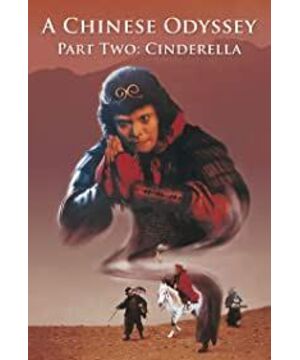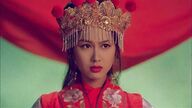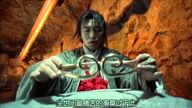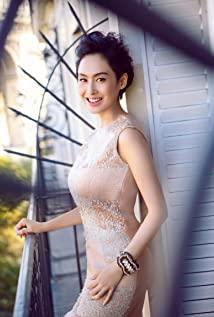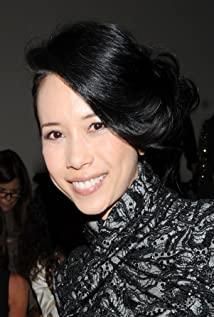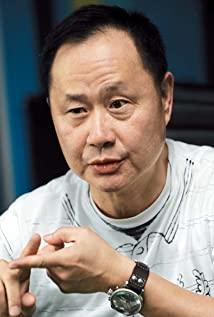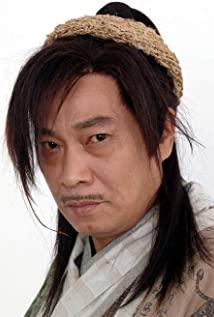not an exaggeration to say that I grew up when I was a little kid. In the upper grades of elementary school, junior high school, high school and even university, it is basically necessary to do it every two years. I remember that I wrote in my composition, ""A Journey to the West", I felt baffled after reading it once, and it was very funny after reading it twice. After reading it three or four times, I would feel deep sadness and helplessness. Until I saw it. After the Nth time, there will be a sense of calmness and relief. "The title of that composition is "The Hand That Never Holds", which is mainly to lament and lament the impermanence of love and destiny.
I believe that many people born in the 80s and 90s understand what I mean, and even feel similar to me. It’s just like what Kan Xingye said in an interview at the time: “He loves her, and she loves him. This kind of story is nothing good when it comes to shooting; she must love him, he doesn’t love her, but he loves her later. She doesn't love him anymore... This kind of tangled story is what everyone likes. "(The original text is not clear, basically it means this) It
may be that when I was in secondary two, I felt that love was too big, and I felt that I could touch it. The impermanence of destiny, coupled with the extreme lack of spiritual and cultural products of that era, it is easy to put a lot of recognition for "A Chinese Journey to the West", as well as the worship and love for the star master.
But I grew up for so many years, went to university, watched more good movies, entered the society, had a profound social experience, and then looked back at "Journey to the West"-this made me never hesitate to fill in. I feel very hesitant for any classic that requires me to fill in the column of "Your Favorite Movie".
Yes, I still love the desolation of the yellow sand in the desert. I am still inexplicably moved when I hear "The Love of a Lifetime", but I have to admit that this film even includes most of the stars In the classic films, the hardened male chauvinism and stereotyped gender concepts are like flaws that can't be stripped through the core.
The film’s appearance setting is actually quite similar to Marie Su, but the gender of the male and female is swapped a bit, let’s call it the male version of Marie Su: The male protagonist is a mediocre, ordinary little character, even a little wretched and timid, and he meets the appearance by chance. The heroines who are tall, capable, and arrogant (in this film are Bai Jingjing and Zixia Fairy, "The King of Comedy" is Karen Mok and Cecilia Cheung), and then the heroines fall in love with him inexplicably and inextricably ( There is a "fate" halo in this film to rationalize this, but most films, such as "The King of Comedy", "Journey to the West", etc., have no reasonable explanation). The story here is exactly the same as the female version of Mary Su. The silly, mentally handicapped heroine is fallen in love with and even contested by the tall, wealthy, handsome, and perfect heroes.
However, the direction of the male and female version of Mary Su's story will be very, very different! ! ! Knock on the blackboard, here is the point! ! !
The female version of Mary Su’s story goes down again, usually when the male protagonists fight for life and death, silly and sweet to make a painful choice, and finally choose one of them, and have lived a happy life since then. Of course, most of the heroes and heroines in the plot At least one of them will get some terminal illness, some car accident or something, but in the end it usually ends with the perfect ending of the heroine and true love.
When the male version of Mary Suri, Supreme Treasure is pursued by the Zixia Fairy, he usually chooses to actively face the conflicts in his personal fate and continue to achieve personal growth. In the end, after the reincarnation of life and death, he returns to the body of the great sage and kills the demon. Demon, save the world, and become a man in capital! And the relationship with Fairy Zixia can only be said to be the little love that a big man had to sacrifice and cut in his great career. Even if he misses his life, it will never affect his successful counterattack from a small person to a great person. . It seems that this emotional conflict must be added to make the story of the boy turning into a man more successful, and to highlight the great significance of his career. The same can be compared to the feelings of Shu Qi and the article in "Journey to the West: Conquering the Devil". The difference in "The King of Comedy" is not big, except that after the male protagonist has completed his personal growth, he has also gained love at the same time.
This is the difference: the plot of the male version of Mary Su is that personal growth and counterattack are the most important, regardless of love He gave birth to a monkey. Of course, the more perfect the heroine, the better. This will highlight the hero's awesomeness. The female version of Mary Su's plot is that it doesn't matter that she has been stupid and sweet, and she does not need to have normal IQ and life skills. As long as there is an excellent and perfect male protagonist who loves his "simple and kindness", of course the more perfect the male protagonist is, the better, so that the female protagonist will have nothing to worry about or worry about with him.
In fact, the core of the male and female version of Mary Su is still the same: the most important thing for boys is self-growth, and the most important thing for girls is to have boys love her. One is the subject and the other is the object. The value of the subject is self-realization, while the value of the object is stared at by the subject and given by the subject. Even, in many cases, the subject has to (forced) to abandon the object to reflect the pain and difficulty of self-growth and great achievement.
The "Journey to the West" that has touched me for so many years, whether it is the helplessness of Supreme Treasure leaving Zixia Fairy or the teasing of this "impermanent destiny", in fact, it is only echoing the dreams created by the boys' self-realization needs. Of course, the essence of movies is to create dreams, but in such dreams, women are nothing but objectified objects, stereotyped images of "As long as the hero loves me, I will live without resentment".
Including "Mermaid", it is only the need for men who have "successful" to return to a simple and innocent life. It is also a man's higher-level self-realization dream. Enchanting and sexy women and pure and innocent women play different roles in this dream. It’s just a prop.
In most of Star Master’s films, in Hong Kong films of that era, and even in almost all domestic films now (such as "Charlotte Troubles"), no one has given female characters a real inner experience, they only need enough Beautiful or ugly enough (need to stare), strong enough or good enough or simple and mentally retarded (need for plot development to contrast with men), all expectations are "love and never separate from the male protagonist", this is completely enough This is the underlying gender recognition in most movies, including many traditional heroic movies in Europe and America. In recent years, many domestic film and television works have appeared in stereotyped images of "strong women", which are generally criticized or contrasted, usually to make the strong women understand that "finding a man to love yourself" is the only meaning of their life. As value-oriented.
If you think these are all normal, if you are not a little awkward or uncomfortable in watching these films and TV works, then think about it in turn, if you are a very good, successful, attractive and interesting man (such as " Shu Qi in "Journey to the West" is a male), when he meets an ordinary person (for example, the article is a female), his life goal suddenly becomes just want to marry this woman, take care of her every day, take care of her children, take care of Family, and this ordinary woman never agrees. In the end, she spontaneously became stronger, became much better than this man, had a more powerful career, and even saved the world... Do you still feel normal when you see such a movie? ? I believe most people will feel awkward.
I don't want to mention the big concept of "men and women or inequality", nor do I want to discuss whether "stereotyped gender impressions" and "gender division of labor" are grand topics constructed by social culture.
I just want to make a little different voice in the after-view of this super high-scoring typical star classic Mary Su movie. For Fairy Zixia's unfinished self and higher ideals in life, "A Journey to the West", I only give one star.
View more about A Chinese Odyssey: Part 2 - Cinderella reviews


